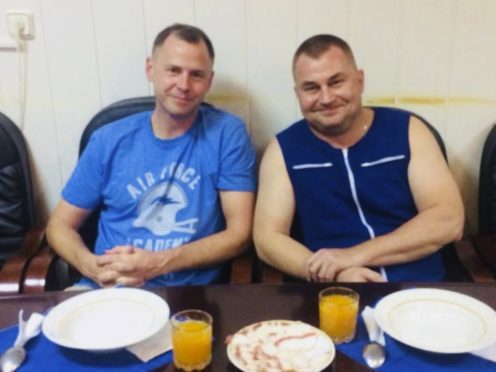Two astronauts have arrived at the Russian space centre for medical checks following a failed launch that led to an emergency landing in Kazakhstan.
American Nick Hague, from Nasa, and Alexei Ovchinin, from Russia’s space agency Roscosmos, blasted off to the International Space Station from the Russia-leased Baikonur cosmodrome in Kazakhstan on Thursday.
American @AstroHague, along with Russian cosmonaut Alexey Ovchinin, are safely resting with their families in Kazakhstan after an anomaly occurred shortly after their launch in a Soyuz spacecraft early Thursday. Learn what happened & when in this recap: https://t.co/W3gxuEoZqJ pic.twitter.com/0fVbTvHOQB
— NASA (@NASA) October 12, 2018
However, their Soyuz rocket failed two minutes after the launch, triggering an emergency that sent their capsule into a steep, harrowing fall back to Earth.
US and Russian space officials said the astronauts were in good condition after enduring gravitational force that was six-to-seven times more than is felt on Earth.
Roscosmos chief Dmitry Rogozin promised that Mr Hague and Mr Ovchinin will be given a chance soon to perform a stint on the orbiting outpost.
“The boys will certainly fly their mission,” Mr Rogozin tweeted, posting a picture in which he sits with the two astronauts on a Moscow-bound plane. “We plan that they will fly in the spring.”
Мы вернулись в Звёздный. Ребята обязательно полетят. Планируем их полёт на весну следующего года. pic.twitter.com/vmEu86Sntd
— Дмитрий Рогозин (@Rogozin) October 12, 2018
Russian space officials said Mr Hague and Mr Rogozin will spend a couple of days at Star City, Russia’s main space training centre outside Moscow, undergoing routine medical checks.
“They are in good health and don’t need any medical assistance,” said Vyacheslav Rogozhnikov, chief of the Russian Federal Medical and Biological Agency.
The aborted mission dealt another blow to the troubled Russian space programme that currently serves as the only way to deliver astronauts to the orbiting outpost.

Sergei Krikalyov, the head of Roscosmos’ manned programmes, said the launch went awry after one of the rocket’s four boosters failed to jettison about two minutes into the flight, damaging the main stage and triggering the emergency landing.
He said a panel of experts is looking into the specific reason that prevented the booster’s separation.
“We will need to look and analyze the specific cause — whether it was a cable, a pyro or a nut,” he said. “We need more data.”
Mr Krikalyov said all Soyuz launches have been suspended pending the investigation. Preliminary findings are expected later this month, Mr Krikalyov said, adding that Roscosmos hopes to be able to sort out the problem and perform the next Soyuz launch in December.
